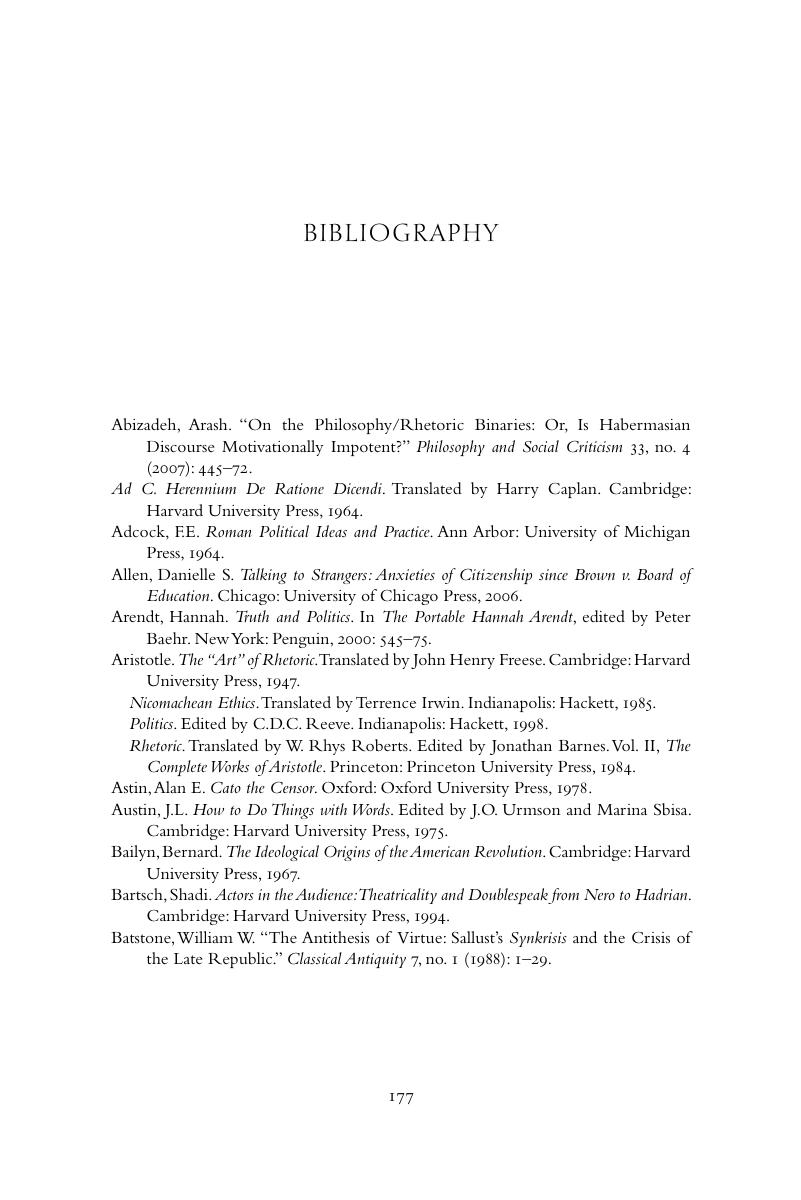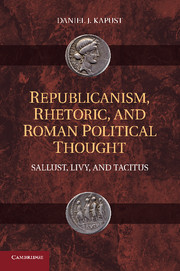Book contents
- Frontmatter
- Contents
- Acknowledgments
- 1 Introduction
- 2 An Ambiguous Republican
- 3 Channeling Conflict through Antagonistic Rhetoric in the War with Catiline
- 4 Exemplarity and Goodwill in Livy's From the Founding of Rome
- 5 Tacitus on Great Men, Bad Rulers, and Prudence
- 6 Tacitus' Moral Histories
- Epilogue
- Bibliography
- Index
- References
Bibliography
Published online by Cambridge University Press: 03 May 2011
- Frontmatter
- Contents
- Acknowledgments
- 1 Introduction
- 2 An Ambiguous Republican
- 3 Channeling Conflict through Antagonistic Rhetoric in the War with Catiline
- 4 Exemplarity and Goodwill in Livy's From the Founding of Rome
- 5 Tacitus on Great Men, Bad Rulers, and Prudence
- 6 Tacitus' Moral Histories
- Epilogue
- Bibliography
- Index
- References
Summary

- Type
- Chapter
- Information
- Republicanism, Rhetoric, and Roman Political ThoughtSallust, Livy, and Tacitus, pp. 177 - 190Publisher: Cambridge University PressPrint publication year: 2011



